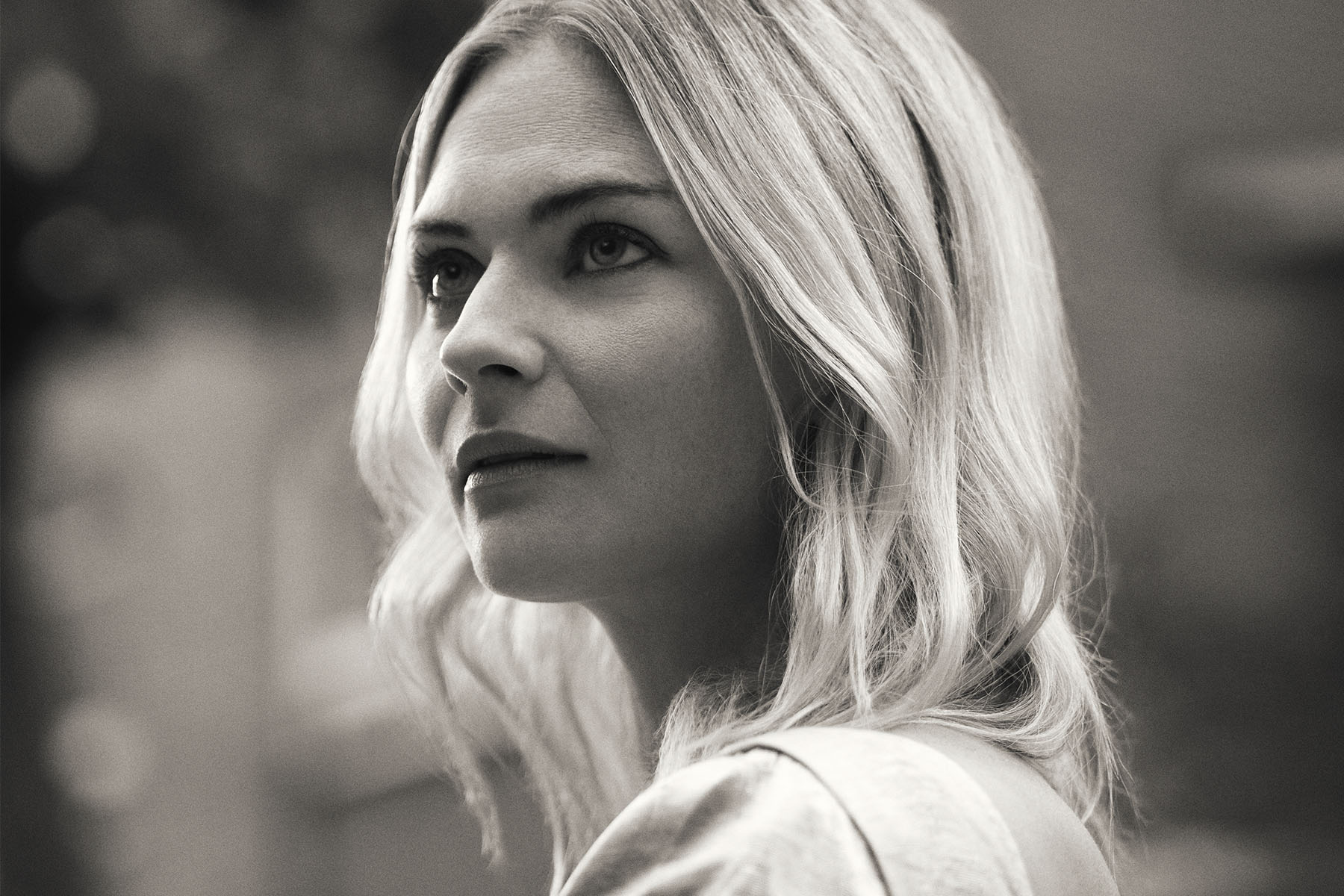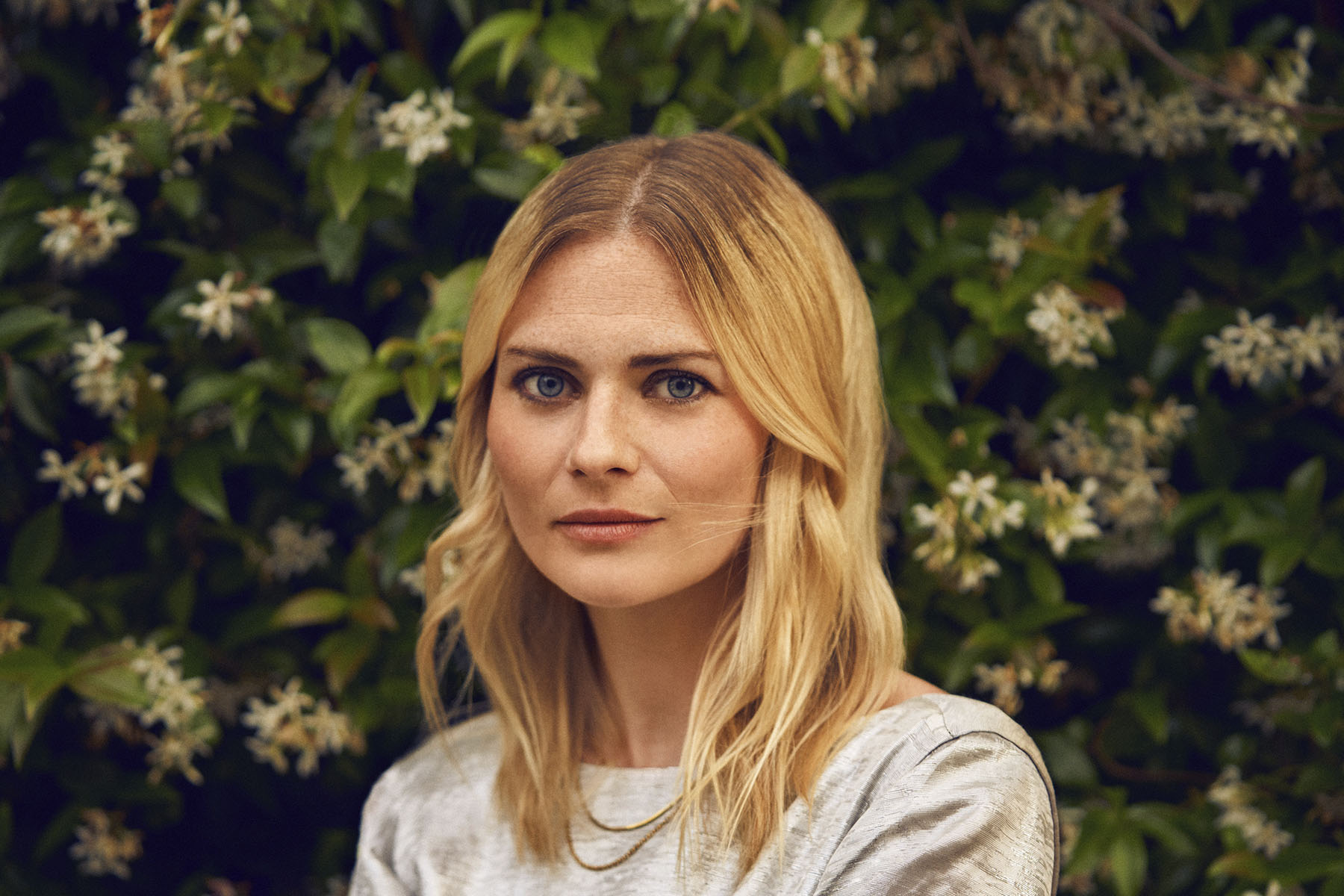
- Home |
- Search Results |
- How Pandora Sykes escaped her phone
How Pandora Sykes escaped her phone
The author and co-host of The High-Low podcast has captured pre-lockdown life in her first book, How Do We Know We're Doing It Right? Here she talks to Alice Vincent about digital detoxing, writing schedules and what she hopes the world will look like after Covid-19.
When she was at university, Pandora Sykes – journalist, author, co-broadcaster of podcast phenomenon The High-Low – earned a moniker: Clipboard Pandy. “It was, perhaps, inevitable: I am ruthlessly organised (anal) and have always loved keeping multiple to-do lists. As a nine-year-old (19-year-old), these would include ‘take shower’ and ‘brush teeth’ so that I could tick tick tick the tasks off with a self-satisfied flourish,” she writes in How Do We Know We’re Doing It Right? the collection of essays that comprises her debut book.
And so it was in this spirit that Sykes set about writing, giving herself a ferocious deadline (interrupted, but not trumped by, the early arrival of her second child) and insisting on re-drafting each chapter “five to 10 times” to quieten her perfectionist spirit. The manuscript was delivered in early March, a mere four months before publication. And then the pandemic struck.
“At first I was very worried and I wanted to go back and add in a prologue or a chapter but it wasn’t possible with the publishing schedule,” she tells me, over the phone, from her home in North London. “It would have been a very different book if I finished writing it now.”
The flotsam of life is given a crucial pedestal here: email etiquette and endless scroll.
Instead, How Do We Know We’re Doing It Right? manages to preserve, aspic-like, the world as it was right on the cusp of everything changing. From fast (and faster) fashion to binge-watching, social media use and side-hustles, Sykes unpicks the curiosities and unconscious habits that broadband-speed modern life has induced. In doing so – at this time, and in this way – her book has offered a broader over-arching question: how much of this do we keep going forward?
Sykes says she hopes the book will “allow almost a bit of cognitive distance to look at the lives we led, and how they might serve us better”. To read it – I’m of Sykes’ generation, although she’s keen to point out the book isn’t targeted at millennials (“every single generation of women, and men, have had to sift through the weeds of life to find the right path for them”) – is to feel, in contemporary parlance, “seen”. The flotsam of life is given a crucial pedestal here: email etiquette and endless scroll. In doing so, Sykes offers an opportunity to reflect on the endless banalities that we never realised were shaping our lives.
“In quite a few of the interviews people have been like, ‘So you’ve written about it all, are you cured?’” she laughs. “I don’t know if I’m necessarily cured but I think the first step is thinking about those things.” Doing It Right, Sykes stresses, is not a self-help book. “I think the biggest problem with modern life is that we think there are answers, so for me to have offered them in the book would have been a neat and unintentional skewer of exactly what I see the problems to be.”

Nevertheless, the few nuggets she offers from her own life are tempting to borrow. Sykes has, for instance, installed a landline for her nearest and dearest to contact her on (“we do not need to be available to everyone, always,” she writes, with the reassuring force of a school matron), leaving her mobile on airplane mode for the most part. She has two papers delivered to her home to three times a week to counter the relentless noise of news websites.
In some ways, the book presents an antithesis to what some might perceive Sykes to be, although she is frequently swift to acknowledge her privilege as a white, cis, able-bodied, privately educated married mother-of-two living in London (who even calls herself “a posh girl” in How Do We Know We’re Doing It Right?). Sykes shot to prominence as the “Wardrobe Mistress” in The Sunday Times’ Style supplement and maintained a well-followed fashion blog, but tackles the responsibility consumer magazines hold in encouraging our relentless craving for new clothes. She has 312,000 Instagram followers, but admits she only checks the app once a week (although she is unabashed in examining her previous usage of it, and the impact she had as an influencer). For those who have found Sykes as a result of The High-Low (approx a million downloads per month), there is little on the much-discussed workings between her and co-host and good friend Dolly Alderton.
How Do We Know We’re Doing It Right? emerged, she says, from “having these things that I desperately wanted to dive into. I don’t have any experience in longform journalism, but I was finding that I was just not getting to even touch the sides of things that I was curious about in an hour-long podcast or in a 1,000-word piece.”
It was that same “need to scratch an itch” that led to Doing It Right, a new, eight-episode podcast that allowed Sykes to further explore the issues in the book with a range of experts. “A comedian, an activist, a philosopher, a historian, a psychotherapist, a broadcaster, a documentarian and a writer,” she rattles off. “They’re all successful, but that doesn’t mean they’ve got life figured out. They’ve offered new insights. The conversations have got more nuanced, and the subjects have been refreshed.”
'I just decided to stop looking more than a week ahead, which is probably quite a good thing for neurotic planners like me.'
One of the most moving parts of How Do We Know We’re Doing It Right?, I tell her, was her exploration of arrival fallacy – otherwise known as the hedonic treadmill – or, as she writes, “the horrible habit of not getting excited by success. Instead a feeling niggles at me: What should I do next?”
I ask if she’s encountered that as her book nears publication, and she answers honestly: “I’m a bit too exhausted and frazzled to think what next. My brain is doing that but I’m trying not to let it.” Still, it’s worth pointing out that the whole of Doing It Right was created and recorded during lockdown: Clipboard Pandy dies hard.
But Sykes says the uncertainty of the past few months has “been good for [her]. I just decided to stop looking more than a week ahead, which is probably quite a good thing for neurotic planners like me. I’m now trying to be very in the moment. I don’t know what’s next and I’m trying not to think about it.”
And what does she wish for the wider world, the rest of us who have felt so disrupted by lockdown, who are left looking back at how we used to live, wondering what we should change? “I hope that we will surrender to boredom,” she says, mentioning philosopher Adam Philips’ concept of vacancies of attention – that “every single time when you could be thinking, most people are filling those moments with looking at your phone.”
During lockdown, Sykes continues, “your phone became the only way people could socialise. Even people who loved their phone just got fed up because it was our entire social life. So people put it down, and played board games and watched box sets.” To be bored, as Sykes explains in How Do We Know We’re Doing It Right?, was a crucial part of her childhood. “It very often leads into is something wonderful,” she tells me, “this glorious bout of daydreaming where your mind can completely soar free.”
In the days after I read How Do We Know We’re Doing It Right?, and after we speak, I find myself switching my phone off from before I go to bed, until noon the next day. I look at how I cram my hours with chatting and swiping and reading, and think a bit about those endless grey Sunday afternoons of my childhood, when boredom lay heavy. It does seem a different time. It seems a bit of a different future, too.